|
|
 |
 |
|

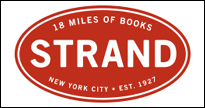

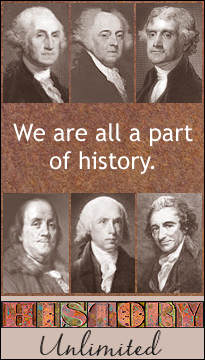


|
 |
|
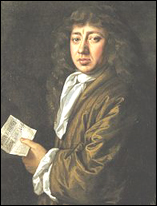 January 1, 1660–British writer, Samuel Pepys, begins his famous diary, a 10-year, day-by-day account of his life which would become one of the most important chronicles of the Great Fire of London in 1666, the British Restoration, and the Bubonic Plague that struck London in 1665, killing more than 100,000 people. This record of a decade of Pepys’s life is more than a million words long and is often regarded as Britain’s most celebrated diary. Pepys has been called the greatest diarist of all time due to his frankness in writing concerning his own weaknesses and the accuracy with which he records events of daily British life and major events in the 17th century. The juxtaposition of his commentary on politics and national events, alongside the very personal, can be seen from the beginning. His opening paragraphs begin: “Blessed be God, at the end of the last year I was in very good health, without any sense of my old pain but upon taking of cold. I lived in Axe yard, having my wife and servant Jane, and no more in family than us three. My wife, after the absence of her terms for seven weeks, gave me hopes of her being with child, but on the last day of the year she hath them again.” Pepys wrote the whole diary in code, presumably to protect the secrecy of some of its more banal details about his personal life, and the work would not be deciphered until the 19th century. January 1, 1660–British writer, Samuel Pepys, begins his famous diary, a 10-year, day-by-day account of his life which would become one of the most important chronicles of the Great Fire of London in 1666, the British Restoration, and the Bubonic Plague that struck London in 1665, killing more than 100,000 people. This record of a decade of Pepys’s life is more than a million words long and is often regarded as Britain’s most celebrated diary. Pepys has been called the greatest diarist of all time due to his frankness in writing concerning his own weaknesses and the accuracy with which he records events of daily British life and major events in the 17th century. The juxtaposition of his commentary on politics and national events, alongside the very personal, can be seen from the beginning. His opening paragraphs begin: “Blessed be God, at the end of the last year I was in very good health, without any sense of my old pain but upon taking of cold. I lived in Axe yard, having my wife and servant Jane, and no more in family than us three. My wife, after the absence of her terms for seven weeks, gave me hopes of her being with child, but on the last day of the year she hath them again.” Pepys wrote the whole diary in code, presumably to protect the secrecy of some of its more banal details about his personal life, and the work would not be deciphered until the 19th century.
Read the complete history of January 1
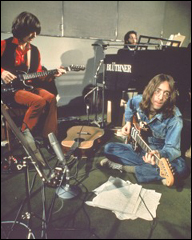 January 2, 1969–Start of The Beatles’ "Get Back" (aka Let It Be) project. With The Beatles on the edge of crisis through much of 1968, Paul McCartney starts urging his fellow group members to consider a return to playing live. The others didn’t care for the idea, especially John Lennon and George Harrison, but they agreed to think about it. Things progressed far enough for Paul to announce to the press that The Beatles would play three shows at the Roundhouse in London in mid-December 1968, but those plans had to be scrapped. As a compromise, Paul suggested that The Beatles could perform a televised concert, either live or pre-taped. A lot of ideas were kicked around for a televised performance, including a concert in a Roman amphitheater, but the logistics were too complex and unrealistic. Since there seemed to be a stalemate in choosing a suitable vehicle, Denis O'Dell suggests that The Beatles begin rehearsing and, perhaps, film those rehearsals for a TV documentary showing the "Beatles at work." They agreed to do the rehearsals and filming at Twickenham Film Studios. Still uncertain as to how to proceed, The Beatles meet at Twickenham on a cold and cheerless sound stage at the beginning of a new year, and the old resentments and tensions began to surface almost immediately. The Beatles jammed aimlessly, with a lack of enthusiasm. Little of what was recorded at Twickenham in January 1969 would be included in the eventual movie, Let it Be. January 2, 1969–Start of The Beatles’ "Get Back" (aka Let It Be) project. With The Beatles on the edge of crisis through much of 1968, Paul McCartney starts urging his fellow group members to consider a return to playing live. The others didn’t care for the idea, especially John Lennon and George Harrison, but they agreed to think about it. Things progressed far enough for Paul to announce to the press that The Beatles would play three shows at the Roundhouse in London in mid-December 1968, but those plans had to be scrapped. As a compromise, Paul suggested that The Beatles could perform a televised concert, either live or pre-taped. A lot of ideas were kicked around for a televised performance, including a concert in a Roman amphitheater, but the logistics were too complex and unrealistic. Since there seemed to be a stalemate in choosing a suitable vehicle, Denis O'Dell suggests that The Beatles begin rehearsing and, perhaps, film those rehearsals for a TV documentary showing the "Beatles at work." They agreed to do the rehearsals and filming at Twickenham Film Studios. Still uncertain as to how to proceed, The Beatles meet at Twickenham on a cold and cheerless sound stage at the beginning of a new year, and the old resentments and tensions began to surface almost immediately. The Beatles jammed aimlessly, with a lack of enthusiasm. Little of what was recorded at Twickenham in January 1969 would be included in the eventual movie, Let it Be.
Read the complete history of January 2
January 3, 1892–Author, J.R.R. Tolkien, is born John Ronald Reuel Tolkien in Bloemfontein, South Africa. He is well known as the creator of a world called “Middle Earth” and its inhabitants (characters like hobbits Bilbo and Frodo Baggins), as well as dragons, trolls, elves, goblins, and other creatures. Educated at Oxford during the outbreak of World War I, he spent his free time writing poetry and inventing languages, until he was called to the Western Front and fought at the Battle of Somme, in and out of the trenches for four months, until he was hospitalized with trench fever. During his long recovery, he wrote tales about elves and gnomes that later became The Silmarillion. But it wasn't until about 1930, that he started his most famous works. As an English professor, while grading papers one day in a state of boredom, a fit of daydreaming led him to write on one of the pages, “In a hole in the ground there lived a hobbit...” His novel, The Hobbit, was published in 1937, followed by the sequel trilogy, The Lord of the Rings.
Read the complete history of January 3
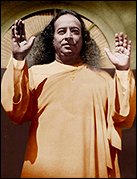 January 4, 1960–French Existentialist novelist, Albert Camus, is killed in an automobile accident in Villeblevin, Yonne, Burgundy, France, at age 46. He had planned to travel by train with his wife and children, but at the last minute he accepted his publisher's proposal to travel with him: Michel Gallimard was the driver of the Facel Vega car, and he also died in the accident. Camus was a French-Algerian Nobel Prize winning author, journalist, and philosopher. His views contributed to the rise of the philosophy known as absurdism. His works include The Stranger, The Plague, The Fall, A Happy Death, and The First Man. January 4, 1960–French Existentialist novelist, Albert Camus, is killed in an automobile accident in Villeblevin, Yonne, Burgundy, France, at age 46. He had planned to travel by train with his wife and children, but at the last minute he accepted his publisher's proposal to travel with him: Michel Gallimard was the driver of the Facel Vega car, and he also died in the accident. Camus was a French-Algerian Nobel Prize winning author, journalist, and philosopher. His views contributed to the rise of the philosophy known as absurdism. His works include The Stranger, The Plague, The Fall, A Happy Death, and The First Man.
Read the complete history of January 4
January 5, 1893–Indian Guru, Paramahansa Yogananda, is born. His book, Autobiography of a Yogi, would influence many generations of spiritual seekers around the world. It has since been translated into 45 languages and in 1999, it was designated one of the "100 Most Important Spiritual Books of the 20th Century." In his published work, The Self-Realization Fellowship Lessons, Yogananda gives "his in-depth instruction in the practice of the highest yoga science of God-realization. That ancient science is embodied in the specific principles and meditation techniques of Kriya Yoga." Yogananda taught his students the need for direct experience of truth, as opposed to blind belief. He said, “The true basis of religion is not belief, but intuitive experience. Intuition is the soul's power of knowing God. To know what religion is really all about, one must know God." He established spiritual centers in many countries, and one of them, The Self-Realization Center, is in Pacific Palisades, California.
Read the complete history of January 5
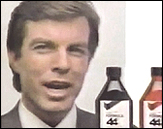 January 6, 1986–1986–For the first time the saying, "I'm not a doctor, but I play one on TV," is uttered: a Vicks Formula 44 cough medicine commercial premieres, with Peter Bergman (from the sopa opera All My Children), and he delivers the famous line. It would have been really great to get a doctor or other medical authority to say something nice about your product and/or service on TV. However, for some reason — FDA approval, budget, truth-in-advertising laws prohibiting advertisers from passing non-doctors off as doctors, etc. — it was not possible to get a real doctor to do it. This phrase, first used during the early 1970s by actor Robert Young of the series, Marcus Welby, M.D., was parodied by many popular culture references. January 6, 1986–1986–For the first time the saying, "I'm not a doctor, but I play one on TV," is uttered: a Vicks Formula 44 cough medicine commercial premieres, with Peter Bergman (from the sopa opera All My Children), and he delivers the famous line. It would have been really great to get a doctor or other medical authority to say something nice about your product and/or service on TV. However, for some reason — FDA approval, budget, truth-in-advertising laws prohibiting advertisers from passing non-doctors off as doctors, etc. — it was not possible to get a real doctor to do it. This phrase, first used during the early 1970s by actor Robert Young of the series, Marcus Welby, M.D., was parodied by many popular culture references.
Read the complete history of January 6
January 7, 2004–Donald Trump’s reality show, The Apprentice, debuts on NBC-TV. The Apprentice was created by British-born American television producer, Mark Burnett. Billed as "The Ultimate Job Interview," the show features 16 to 18 business people who compete over the course of a season, with usually one contestant eliminated per episode. Trump started his catch phrase, “You’re Fired,” as a contestant would depart the show each week. Seven of the show's seasons featured aspiring, but otherwise unknown, business men and women who would vie for the show's prize: a one-year $250,000 starting contract to run one of Donald Trump's companies. There have also been seven seasons of The Celebrity Apprentice since 2008: in this format, several celebrities would participate to win money for their chosen charities, with the final prize being a large donation to the celebrity's charity and the title of "Apprentice." Real estate tycoon and now President Donald Trump was the show's host for the first 14 seasons. After Trump declared that he would run for President, it was announced that the 15th season would be hosted by actor and former California governor, Arnold Schwarzenegger.
Read the complete history of January 7
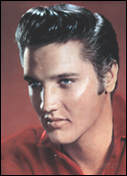 January 8, 1935–”The King” of rock ‘n’ roll, Elvis Aron Presley, is born in Tupelo, Mississippi, in a shotgun house built by his father, Vernon Presley. Elvis is one of a pair of twins, and his brother, Jessie Garon, is stillborn 35 minutes before him. As a singer, musician, and actor, Elvis is regarded as one of the most significant cultural icons of the 20th century. Billboard ranks him as the “top pop recording artist of all time” with 17 #1 hits. His hits include That’s Alright Mama, Heartbreak Hotel, Blue Suede Shoes, Don’t Be Cruel, Hound Dog, Love Me Tender, (Let Me Be Your) Teddy Bear, Jailhouse rock, Don’t, It’s Now or Never, Are You Lonesome Tonight?, Can’t Help Falling in Love, Viva Las Vegas, Such a Night, and If I Can Dream. He appeared in the films Love Me Tender, Loving You, Jailhouse Rock, King Creole, G.I. Blues, Flaming Star, Wild in the Country, Blue Hawaii, Follow That Dream, Girls! Girls! Girls!, It Happened at the World’s Fair, Viva Las Vegas, Girl Happy, Clam Bake, Charro!, and Change of Habit. He was married to Priscilla Beaulieu, and his daughter is Lisa Marie Presley. January 8, 1935–”The King” of rock ‘n’ roll, Elvis Aron Presley, is born in Tupelo, Mississippi, in a shotgun house built by his father, Vernon Presley. Elvis is one of a pair of twins, and his brother, Jessie Garon, is stillborn 35 minutes before him. As a singer, musician, and actor, Elvis is regarded as one of the most significant cultural icons of the 20th century. Billboard ranks him as the “top pop recording artist of all time” with 17 #1 hits. His hits include That’s Alright Mama, Heartbreak Hotel, Blue Suede Shoes, Don’t Be Cruel, Hound Dog, Love Me Tender, (Let Me Be Your) Teddy Bear, Jailhouse rock, Don’t, It’s Now or Never, Are You Lonesome Tonight?, Can’t Help Falling in Love, Viva Las Vegas, Such a Night, and If I Can Dream. He appeared in the films Love Me Tender, Loving You, Jailhouse Rock, King Creole, G.I. Blues, Flaming Star, Wild in the Country, Blue Hawaii, Follow That Dream, Girls! Girls! Girls!, It Happened at the World’s Fair, Viva Las Vegas, Girl Happy, Clam Bake, Charro!, and Change of Habit. He was married to Priscilla Beaulieu, and his daughter is Lisa Marie Presley.
Read the complete history of January 8
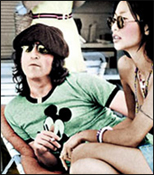 January 9, 1975–On a trip to Disney World in Orlando, Florida, (with his son, Julian, and May Pang) John Lennon overcomes his qualms about severing The Beatles business dealings, and finally signs the required document while staying at the Polynesian Village Hotel. The Beatles’ partnership is then legally dissolved. From this point on, The Beatles exist only as a memory. Yet, it is hard to pinpoint the exact moment when The Beatles ended as a group. John Lennon had officially walked out of a meeting at Apple headquarters, with the other three Beatles present, on September 20, 1969. His words were, "I want a divorce. Just like the one I got from Cynthia (his first wife)." Ringo Starr had already quit the band, back in August of 1968, during the recording session for "The White Album." In January of 1969, during the filming of The Beatles' last movie Let It Be, George Harrison got fed up with the quarreling (and Yoko Ono) and he, too, made for the nearest exit. "See you around the clubs,” he said as he left. Paul McCartney was the first to publicly announce an end to the Fab Four, on April 10, 1970, with a formal newspaper interview, saying "I'm quitting The Beatles." January 9, 1975–On a trip to Disney World in Orlando, Florida, (with his son, Julian, and May Pang) John Lennon overcomes his qualms about severing The Beatles business dealings, and finally signs the required document while staying at the Polynesian Village Hotel. The Beatles’ partnership is then legally dissolved. From this point on, The Beatles exist only as a memory. Yet, it is hard to pinpoint the exact moment when The Beatles ended as a group. John Lennon had officially walked out of a meeting at Apple headquarters, with the other three Beatles present, on September 20, 1969. His words were, "I want a divorce. Just like the one I got from Cynthia (his first wife)." Ringo Starr had already quit the band, back in August of 1968, during the recording session for "The White Album." In January of 1969, during the filming of The Beatles' last movie Let It Be, George Harrison got fed up with the quarreling (and Yoko Ono) and he, too, made for the nearest exit. "See you around the clubs,” he said as he left. Paul McCartney was the first to publicly announce an end to the Fab Four, on April 10, 1970, with a formal newspaper interview, saying "I'm quitting The Beatles."
Read the complete history of January 9
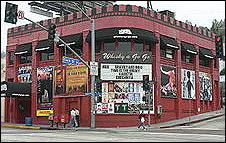 January 10, 2016–Singer, David Bowie, dies of liver cancer in Manhattan, New York, at age 69. He was a figure in popular music for over five decades, and was considered by critics and other musicians as an innovator, particularly for his work in the 1970s. His hits include I Dig Everything, Space Oddity, Changes, The Jean Genie, Time, Rebel Rebel, Young Americans, Fame, Fashion, Let’s Dance, Modern Love, and This Is Not America. He appeared in the films The Man Who Fell to Earth, Just a Gigolo, The Hunger, Merry Christmas, Mr. Lawrence, Into the Night, Absolute Beginners, The Last Temptation of Christ, The Linguini Incident, Twin Peaks: Fire Walk with Me, Gunslinger's Revenge, Everybody Loves Sunshine, and The Prestige. January 10, 2016–Singer, David Bowie, dies of liver cancer in Manhattan, New York, at age 69. He was a figure in popular music for over five decades, and was considered by critics and other musicians as an innovator, particularly for his work in the 1970s. His hits include I Dig Everything, Space Oddity, Changes, The Jean Genie, Time, Rebel Rebel, Young Americans, Fame, Fashion, Let’s Dance, Modern Love, and This Is Not America. He appeared in the films The Man Who Fell to Earth, Just a Gigolo, The Hunger, Merry Christmas, Mr. Lawrence, Into the Night, Absolute Beginners, The Last Temptation of Christ, The Linguini Incident, Twin Peaks: Fire Walk with Me, Gunslinger's Revenge, Everybody Loves Sunshine, and The Prestige.
Read the complete history of January 10
January 11, 1963–The first discotheque, the Whisky a Go Go, opens on the Sunset Strip in Los Angeles, California. Following the “go-go and twist dance craze,” the rock club would become a hangout for musicians trying to break into the music industry, as well as the launch pad for early-psychedelic rockers including The Doors, The Byrds, Buffalo Springfield, Steppenwolf, Van Halen, Johnny Rivers, and Guns N' Roses. The Whisky was founded by Elmer Valentine, Phil Tanzini, Shelly Davis, and attorney Theodore Flier. The Los Angeles rock and roll scene was born when the Whisky started operation and because of its status as an historic music landmark, the venue was inducted into the Rock and Roll Hall of Fame in 2006.
Read the complete history of January 11
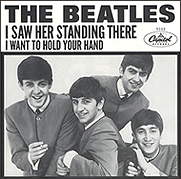 January 12, 1628–Charles Perrault, author of the Mother Goose fairy tales, is born in Paris, France. Perrault's publication in 1695, marks the first authenticated starting-point for Mother Goose stories. The figure of Mother Goose is the imaginary author of a collection of fairy tales and nursery rhymes, often published as (Old) Mother Goose's Rhymes. As a character, she appears in only one nursery rhyme. The best known of his tales include Little Red Riding Hood, Cinderella, Puss in Boots, The Sleeping Beauty, and Bluebeard. Many of Perrault's stories, which were rewritten by The Brothers Grimm, continue to be published, and have been adapted to opera, ballet, theatre, and film. January 12, 1628–Charles Perrault, author of the Mother Goose fairy tales, is born in Paris, France. Perrault's publication in 1695, marks the first authenticated starting-point for Mother Goose stories. The figure of Mother Goose is the imaginary author of a collection of fairy tales and nursery rhymes, often published as (Old) Mother Goose's Rhymes. As a character, she appears in only one nursery rhyme. The best known of his tales include Little Red Riding Hood, Cinderella, Puss in Boots, The Sleeping Beauty, and Bluebeard. Many of Perrault's stories, which were rewritten by The Brothers Grimm, continue to be published, and have been adapted to opera, ballet, theatre, and film.
Read the complete history of January 12
January 13, 1964–The Beatles release their breakthrough single I Want to Hold Your Hand in the U.S. This upbeat record will serve as the catalyst for the outbreak of Beatlemania that will occur in less than a month when the Fab Four arrive in New York. I Want to Hold Your Hand became The Beatles' best-selling single worldwide. Once it reached the #1 spot on the American charts on February 1st, it stayed there for seven weeks. With that, the "British Invasion" of America had been launched. Written by John Lennon and Paul McCartney, and recorded in October 1963, it was the first Beatles record to be made using four-track equipment. I Want to Hold Your Hand was also released in America on the album Meet the Beatles, which outsold the single.
Read the complete history of January 13
January 14, 1954–Baseball player, Joe DiMaggio, marries sex symbol, Marilyn Monroe, at San Francisco’s City Hall. Sadly, the couple's marriage was short-lived and they divorced nine months later. Still, many believe that she was the love of his life. After she and playwright, Arthur Miller, divorced, DiMaggio reportedly asked Monroe to marry him again. The pair never remarried, but they remained "good friends" until Monroe's death in 1962. Afterwards, DiMaggio sent roses to her grave several times a week for the next two decades.
Read the complete history of January 14
 January 15, 1889–The Coca-Cola Company, known as the Pemberton Medicine Company, is incorporated in Atlanta, Georgia. The Coca-Cola formula and brand were bought in 1889, by Asa Griggs Candler, who incorporated The Coca-Cola Company in 1892. The company has operated a franchised distribution system since 1889, wherein The Coca-Cola Company only produces syrup concentrate, which is then sold to various bottlers throughout the world who hold exclusive territories. Coca-Cola bottlers produce the finished product in cans and bottles from the concentrate in combination with filtered water and sweeteners. The bottlers then sell, distribute, and merchandise the resulting Coca-Cola product to retail stores, vending machines, restaurants, and food service distributors. Coca-Cola advertising has been among the most prolific in marketing history, with a notable and major impact on popular culture and society as a whole. The logo, bottle design, and brand image are internationally recognizable. Coca-Cola memorabilia is amongst the most sought after and valuable on the international colletibles market. January 15, 1889–The Coca-Cola Company, known as the Pemberton Medicine Company, is incorporated in Atlanta, Georgia. The Coca-Cola formula and brand were bought in 1889, by Asa Griggs Candler, who incorporated The Coca-Cola Company in 1892. The company has operated a franchised distribution system since 1889, wherein The Coca-Cola Company only produces syrup concentrate, which is then sold to various bottlers throughout the world who hold exclusive territories. Coca-Cola bottlers produce the finished product in cans and bottles from the concentrate in combination with filtered water and sweeteners. The bottlers then sell, distribute, and merchandise the resulting Coca-Cola product to retail stores, vending machines, restaurants, and food service distributors. Coca-Cola advertising has been among the most prolific in marketing history, with a notable and major impact on popular culture and society as a whole. The logo, bottle design, and brand image are internationally recognizable. Coca-Cola memorabilia is amongst the most sought after and valuable on the international colletibles market.
Read the complete history of January 15
January 16, 1918–Screenwriter, Stirling (Dale) Silliphant, is born in Detroit, Michigan. He wrote for many of the classic drama shows of the 1950s and 1960s, including the hit anthology series Route 66 (74 episodes). Silliphant was a film and television writer with more than 700 hours of prime-time television drama to his credit, many of which earned Emmys for their producers, directors, and cast members. He started out writing for Disney’s The Mickey Mouse Club, but soon moved on to Playhouse 90, Perry Mason, Naked City, and Alfred Hitchcock Presents. His film credits include 5 Against the House, Village of the Damned, The Slender Thread, In the Heat of the Night, Charly, Marlowe, The Poseidon Adventure, The Towering Inferno, When Time Ran Out..., and Over the Top.
Read the complete history of January 16
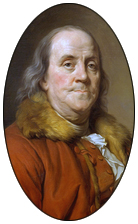 January 17, 1706–Statesman, Benjamin Franklin, one of America’s Founding Fathers, is born in Boston, Massachusetts. A renowned polymath, Franklin was a leading author, printer, political theorist, politician, freemason, postmaster, scientist, inventor, civic activist, and diplomat. As a scientist, he was a major figure in the American Enlightenment and the history of physics for his discoveries and theories regarding electricity. As an inventor, he is known for the lightning rod, bifocals, and the Franklin stove, among other inventions. Franklin became a successful newspaper editor and printer in Philadelphia, Pennsylvania, the leading city in the colonies. With two partners, he published The Pennsylvania Chronicle, a newspaper that was known for its revolutionary sentiments and criticisms of the British policies. He also published Poor Richard's Almanack and The Pennsylvania Gazette. From 1785 to 1788, he served as Governor of Pennsylvania. Toward the end of his life, he freed his own slaves and became one of the most prominent abolitionists. His portrait appears on the U.S. $100 bill. January 17, 1706–Statesman, Benjamin Franklin, one of America’s Founding Fathers, is born in Boston, Massachusetts. A renowned polymath, Franklin was a leading author, printer, political theorist, politician, freemason, postmaster, scientist, inventor, civic activist, and diplomat. As a scientist, he was a major figure in the American Enlightenment and the history of physics for his discoveries and theories regarding electricity. As an inventor, he is known for the lightning rod, bifocals, and the Franklin stove, among other inventions. Franklin became a successful newspaper editor and printer in Philadelphia, Pennsylvania, the leading city in the colonies. With two partners, he published The Pennsylvania Chronicle, a newspaper that was known for its revolutionary sentiments and criticisms of the British policies. He also published Poor Richard's Almanack and The Pennsylvania Gazette. From 1785 to 1788, he served as Governor of Pennsylvania. Toward the end of his life, he freed his own slaves and became one of the most prominent abolitionists. His portrait appears on the U.S. $100 bill.
Read the complete history of January 17
January 18, 1990–Child actor, Rusty Hamer, dies of a self-inflicted gunshot wound to the head in DeRidder, Louisiana, at age 42. He is best known for the role of the wisecracking, older-than-his-years son of Danny Thomas in the TV series Make Room for Daddy and The Danny Thomas Show. Hamer's suicide raised awareness of the potential mental fragility of child performers and inspired fellow former child actor, Paul Petersen, of The Donna Reed Show, to establish the support group, “A Minor Consideration,” which seeks to improve working conditions for young actors and assists former child stars in making the transition from past fame to adult life.
Read the complete history of January 18
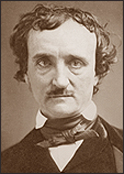 January 19, 1809–Author, Edgar Allan Poe, is born in Boston, Massachusetts. He will be orphaned three years later. He was raised in Richmond, Virginia, by John Allan. Allan gave Poe a good education, sending him to the University of Virginia. He published his first collection of poetry in 1827: Tamerlane and Other Poems. His most famous poem, “The Raven,” was published in 1845. Poe was one of the earliest American practitioners of the short story, and is generally considered the inventor of the modern detective story. His other works include The Fall of the House of Usher, The Masque of the Red Death, Murders in the Rue Morgue, The Pit and the Pendulum, The Premature Burial, and The Tell-Tale Heart. Among his most well-known poems are “Annabel Lee,” “The City in the Sea,” and “The Conqueror Worm.” January 19, 1809–Author, Edgar Allan Poe, is born in Boston, Massachusetts. He will be orphaned three years later. He was raised in Richmond, Virginia, by John Allan. Allan gave Poe a good education, sending him to the University of Virginia. He published his first collection of poetry in 1827: Tamerlane and Other Poems. His most famous poem, “The Raven,” was published in 1845. Poe was one of the earliest American practitioners of the short story, and is generally considered the inventor of the modern detective story. His other works include The Fall of the House of Usher, The Masque of the Red Death, Murders in the Rue Morgue, The Pit and the Pendulum, The Premature Burial, and The Tell-Tale Heart. Among his most well-known poems are “Annabel Lee,” “The City in the Sea,” and “The Conqueror Worm.”
Read the complete history of January 19
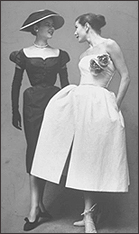 January 20, 1988–The 3rd Annual Rock and Roll Hall of Fame Induction Ceremony is held. This year’s inductees are: (Performers) The Beach Boys, The Beatles, Bob Dylan, The Drifters, and The Supremes; (Non-Performer) Berry Gordy, Jr.; and (Early Influence) Lead Belly, Woody Guthrie, and Les Paul. The ceremony takes place at The Waldorf Astoria Hotel in New York City. George Harrison, Ringo Starr, Yoko Ono, and Sean and Julian Lennon attend. Paul McCartney does not attend, sending instead a letter stating that continuing business differences with the other ex-Beatles was the reason for his absence. Yoko slyly tells the press that John Lennon would have been here if he were still alive. January 20, 1988–The 3rd Annual Rock and Roll Hall of Fame Induction Ceremony is held. This year’s inductees are: (Performers) The Beach Boys, The Beatles, Bob Dylan, The Drifters, and The Supremes; (Non-Performer) Berry Gordy, Jr.; and (Early Influence) Lead Belly, Woody Guthrie, and Les Paul. The ceremony takes place at The Waldorf Astoria Hotel in New York City. George Harrison, Ringo Starr, Yoko Ono, and Sean and Julian Lennon attend. Paul McCartney does not attend, sending instead a letter stating that continuing business differences with the other ex-Beatles was the reason for his absence. Yoko slyly tells the press that John Lennon would have been here if he were still alive.
Read the complete history of January 20
January 21, 1905–Fashion designer and founder of one of the world's most renowned fashion houses, Christian Dior, is born in Normandy, France. As a boy, Dior sold sketches outside his home for the equivalent of 10 cents. As a young man, he briefly owned a small art gallery, which he ran with a friend. After several positions with French design houses, including designing fashions for Nazi officers' wives during World War II, Dior founded his own fashion house in 1947. Dior's alluring designs would go on to revolutionize fashion and firmly establish Paris as the fashion capitol of the world.
Read the complete history of January 21
 January 22, 1984–The Apple Macintosh, the first consumer computer to popularize the mouse and a graphical user interface, is introduced by Steve Jobs during the Super Bowl. The introduction came by way of a $1.5 million Ridley Scott television commercial entitled "1984." Two days after the commerical aired, the Macintosh went on sale, and was bundled with two applications designed to show off its interface: MacWrite and MacPaint. It was demonstrated by Steve Jobs in the first of his famous Mac keynote speeches, and the Mac garnered an immediate, enthusiastic following. This was the company's first mass-market personal computer that was later renamed "Macintosh 128k" for uniqueness amongst a populous family of subsequently updated models, which are also based on Apple's same proprietary architecture. Since 1998, Apple has largely phased out the Macintosh name in favor of "Mac," and the product family has been nicknamed "Mac" or "the Mac" since the development of the first model. Apple innovations continued over the decades with the Power Macintosh, the iMac, the iPod, the iPhone, and the Mac Mini. January 22, 1984–The Apple Macintosh, the first consumer computer to popularize the mouse and a graphical user interface, is introduced by Steve Jobs during the Super Bowl. The introduction came by way of a $1.5 million Ridley Scott television commercial entitled "1984." Two days after the commerical aired, the Macintosh went on sale, and was bundled with two applications designed to show off its interface: MacWrite and MacPaint. It was demonstrated by Steve Jobs in the first of his famous Mac keynote speeches, and the Mac garnered an immediate, enthusiastic following. This was the company's first mass-market personal computer that was later renamed "Macintosh 128k" for uniqueness amongst a populous family of subsequently updated models, which are also based on Apple's same proprietary architecture. Since 1998, Apple has largely phased out the Macintosh name in favor of "Mac," and the product family has been nicknamed "Mac" or "the Mac" since the development of the first model. Apple innovations continued over the decades with the Power Macintosh, the iMac, the iPod, the iPhone, and the Mac Mini.
Read the complete history of January 22
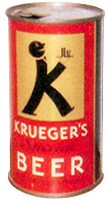 January 23, 1969–Cream’s farewell LP, Goodbye, is released. On the album is the song Badge, which was co-written by Eric Clapton and George Harrison. The song’s instrumental section is used again by Harrison for his song Here Comes the Sun. Harrison plays guitar on Badge, using the name L'Angelo Misterioso. Clapton will later play the song during his January 13, 1973, comeback concert at London’s Rainbow Theatre. The song was named when Clapton misread a notation Harrison had made on the lyric sheet: it said “bridge,” but Clapton read it as “badge.” There exists another version of how the song was named: that it was Ringo Starr who misread the notation. January 23, 1969–Cream’s farewell LP, Goodbye, is released. On the album is the song Badge, which was co-written by Eric Clapton and George Harrison. The song’s instrumental section is used again by Harrison for his song Here Comes the Sun. Harrison plays guitar on Badge, using the name L'Angelo Misterioso. Clapton will later play the song during his January 13, 1973, comeback concert at London’s Rainbow Theatre. The song was named when Clapton misread a notation Harrison had made on the lyric sheet: it said “bridge,” but Clapton read it as “badge.” There exists another version of how the song was named: that it was Ringo Starr who misread the notation.
Read the complete history of January 23
January 24, 1935–The beer can, created by the American Can Company, is introduced in Richmond, Virginia, by the Gottfried Krueger Brewing Company of Newark, New Jersey. American Can Company had developed a can that was appropriate for holding beer. It had to be lined as beer is very quickly ruined by contact with metal. It also had to be strong enough to withstand pasteurization and the pressure of carbonization from the beer inside. While brewers around the country were eager to try new packaging to increase their market shares, no one wanted to be first and risk a disaster, but Krueger made the initial leap and it was a flying success. More and more distributors began asking for Krueger's in the new cans. Krueger's did well in the 1930s and 1940s, and they became one of the biggest regional breweries in the eastern U.S., selling all up and down the Atlantic Coast and in New England. The Beer Can Museum, located in East Taunton, Massachusetts, has a collection of more than 5,000 different beer cans: the oldest can in the collection is a Krueger Ale can from the 1930s, which is similar to the first beer can ever produced in 1935.
Read the complete history of January 24
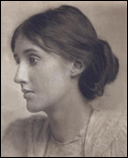 January 25, 1882–British novelist and essayist, Virginia Woolf, is born Adeline Virginia Stephen, in London, England. Her father was the formidable Victorian intellectual Sir Leslie Stephen. As the editor of Cornhill Magazine, he nurtured the careers of Thomas Hardy, Robert Lewis Stevenson, and Henry James. After her father died in 1904, she settled in Gordon Square in London, where a circle of artists and writers gathered around her who became known as the "Bloomsbury Group." She married Leonard Woolf in 1912, and five years later they founded the Hogarth Press. Her novels include The Voyage Out, Mrs. Dalloway, To the Lighthouse, and Orlando. The novels focus less on traditional plot and more on the ways in which her characters experience time and the events of their daily lives. She was also a brilliant essayist, best known for her long essay, "A Room of One's Own," about the difficulties faced by women who want to be writers. She suffered from mental illness for most of her life, and was carefully tended by her husband, Leonard. However, in March 1941, she placed several large stones in the pockets of her coat and drowned herself in the river near her home in Rodmell, Sussex, England. Playwright Edward Albee said that the title of his play, Who’s Afraid of Virginia Woolf?, came from a piece of graffiti he read on a West Berlin wall. January 25, 1882–British novelist and essayist, Virginia Woolf, is born Adeline Virginia Stephen, in London, England. Her father was the formidable Victorian intellectual Sir Leslie Stephen. As the editor of Cornhill Magazine, he nurtured the careers of Thomas Hardy, Robert Lewis Stevenson, and Henry James. After her father died in 1904, she settled in Gordon Square in London, where a circle of artists and writers gathered around her who became known as the "Bloomsbury Group." She married Leonard Woolf in 1912, and five years later they founded the Hogarth Press. Her novels include The Voyage Out, Mrs. Dalloway, To the Lighthouse, and Orlando. The novels focus less on traditional plot and more on the ways in which her characters experience time and the events of their daily lives. She was also a brilliant essayist, best known for her long essay, "A Room of One's Own," about the difficulties faced by women who want to be writers. She suffered from mental illness for most of her life, and was carefully tended by her husband, Leonard. However, in March 1941, she placed several large stones in the pockets of her coat and drowned herself in the river near her home in Rodmell, Sussex, England. Playwright Edward Albee said that the title of his play, Who’s Afraid of Virginia Woolf?, came from a piece of graffiti he read on a West Berlin wall.
Read the complete history of January 25
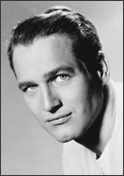 January 26, 1925–Actor, Paul (Leonard) Newman, is born in Shaker Heights, Ohio. He was one of the most popular and well-repected actors of the 20th century, with fans in multiple generations. He appeared in the films The Silver Chalice, Somebody Up There Likes Me, The Helen Morgan Story, Until They Sail, The Long Hot Summer, The Left Handed Gun, Cat on a Hot Tin Roof, The Young Philadelphians, The Hustler, Paris Blues, Sweet Bird of Youth, Hud, The Outrage, Harper, Hombre, Cool Hand Luke, Winning, Butch Cassidy and the Sundance Kid, The Sting, Absence of Malice, The Verdict, Harry & Son, Mr. and Mrs. Bridge, and Nobody’s Fool. He was a co-founder of Newman's Own, a food company from which Newman donated all post-tax profits and royalties to charity: as of December 31, 2014, these donations totaled $429.3 million. Newman was an ordained minister of the Universal Life Church. He was married to actress, Joanne Woodward. January 26, 1925–Actor, Paul (Leonard) Newman, is born in Shaker Heights, Ohio. He was one of the most popular and well-repected actors of the 20th century, with fans in multiple generations. He appeared in the films The Silver Chalice, Somebody Up There Likes Me, The Helen Morgan Story, Until They Sail, The Long Hot Summer, The Left Handed Gun, Cat on a Hot Tin Roof, The Young Philadelphians, The Hustler, Paris Blues, Sweet Bird of Youth, Hud, The Outrage, Harper, Hombre, Cool Hand Luke, Winning, Butch Cassidy and the Sundance Kid, The Sting, Absence of Malice, The Verdict, Harry & Son, Mr. and Mrs. Bridge, and Nobody’s Fool. He was a co-founder of Newman's Own, a food company from which Newman donated all post-tax profits and royalties to charity: as of December 31, 2014, these donations totaled $429.3 million. Newman was an ordained minister of the Universal Life Church. He was married to actress, Joanne Woodward.
Read the complete history of January 26
January 27, 1756–Composer, Wolfgang Amadeus Mozart, is born Johannes Chrysostomus Wolfgangus Theophilus Mozart in Salzburg, Austria. His father, Leopold Mozart, was a composer and teacher who turned impresario to present his children in concerts throughout Europe. By the age of six, Wolfgang was a skilled keyboard player, playing duets with his sister, Nannerl, in concerts for royal audiences in London, Paris, and Vienna. He also began to compose at a very early age, writing three operas when he was 12, and 16 symphonies by the time he turned 15. Before his early death at the age of 35, he had written 41 symphonies and a string of great operas, including The Marriage of Figaro, Don Giovanni, Cosi fan tutte, and The Magic Flute.
Read the complete history of January 27
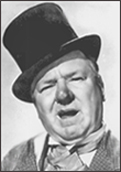 January 28, 1920–The annual Salon des Indépendants exhibition in Paris, France, opens with over 3,000 works displayed. The lack of any artworks by Picasso notwithstanding, there were an exceptionally large number of Cubists represented. This was a concerted effort by the group to maintain their position at the forefront of the avant-garde in the face of the encroaching anti-art Dada movement. The following year's exhibition would be the first French exhibition to display Dada art. The movement would falter a year later with its abandonment by Marcel Duchamp, to be reinvented as Surrealism by André Breton in 1924. January 28, 1920–The annual Salon des Indépendants exhibition in Paris, France, opens with over 3,000 works displayed. The lack of any artworks by Picasso notwithstanding, there were an exceptionally large number of Cubists represented. This was a concerted effort by the group to maintain their position at the forefront of the avant-garde in the face of the encroaching anti-art Dada movement. The following year's exhibition would be the first French exhibition to display Dada art. The movement would falter a year later with its abandonment by Marcel Duchamp, to be reinvented as Surrealism by André Breton in 1924.
Read the complete history of January 28
January 29, 1880–Comedian-actor, W.C. Fields, is born William Claude Dukenfield in Darby, Pennsylvania. He is best known for his snarling contempt for dogs and children. In several of his films, he played hustlers, carnival barkers, and card sharps, spinning yarns and distracting his marks. In others, he cast himself as a victim: a bumbling everyman husband and father whose family does not appreciate him. He appeared in the films Tillie’s Punctured Romance, Alice in Wonderland, David Copperfield, You Can’t Cheat an Honest Man, My Little Chickadee, The Bank Dick, and Never Give a Sucker an Even Break.
Read the complete history of January 29
 January 30, 1948–Mahatma Gandhi, leader of the Indian nationalist movement against British rule, is assassinated by a Hindu extremist in New Delhi, India, at age 78. Gandhi had led the country of India in a series of non-violent campaigns for independence from Great Britain in 1947. The following year, violence broke out between Hindus and Muslims within the country. Gandhi was trying to convince his people to embrace all peoples and all religions. Employing nonviolent civil disobedience, Gandhi led India to independence and inspired movements for civil rights and freedom around the world. He lived modestly in a self-sufficient residential community and wore the traditional Indian dhoti and shawl, woven with yarn hand-spun on a charkha. He ate simple vegetarian food, and also undertook long fasts as a means of both self-purification and political protest. He was imprisoned for many years, upon many occasions, in both South Africa and India. Mahatma Gandhi's birthday, October 2nd, is commemorated in India as Gandhi Jayanti, a national holiday, and worldwide as the International Day of Nonviolence. January 30, 1948–Mahatma Gandhi, leader of the Indian nationalist movement against British rule, is assassinated by a Hindu extremist in New Delhi, India, at age 78. Gandhi had led the country of India in a series of non-violent campaigns for independence from Great Britain in 1947. The following year, violence broke out between Hindus and Muslims within the country. Gandhi was trying to convince his people to embrace all peoples and all religions. Employing nonviolent civil disobedience, Gandhi led India to independence and inspired movements for civil rights and freedom around the world. He lived modestly in a self-sufficient residential community and wore the traditional Indian dhoti and shawl, woven with yarn hand-spun on a charkha. He ate simple vegetarian food, and also undertook long fasts as a means of both self-purification and political protest. He was imprisoned for many years, upon many occasions, in both South Africa and India. Mahatma Gandhi's birthday, October 2nd, is commemorated in India as Gandhi Jayanti, a national holiday, and worldwide as the International Day of Nonviolence.
Read the complete history of January 30
January 31, 1976–Criminal, Ernesto Miranda, dies from being stabbed in a knife fight in a bar in Phoenix, Arizona, at age 34. He was a laborer whose conviction on kidnapping, rape, and armed robbery charges based on his confession under police interrogation, was set aside in the landmark U.S. Supreme Court case (Miranda v. Arizona, November 1965). It ruled that criminal suspects must be informed of their right against self-incrimination and their right to consult with an attorney before being questioned by police. This warning is commonly known as “Miranda rights.” Every U.S. jurisdiction has its own regulations regarding what, precisely, must be said to a person arrested or placed in a custodial situation. The typical warning states: they have the right to remain silent; anything the suspect does say can and may be used against them in a court of law; they have the right to have an attorney present before and during the questioning; and they have the right, if they cannot afford the services of an attorney, to have one appointed, at public expense and without cost to them, to represent them before and during the questioning.
Read the complete history of January 31
PHOTOS FROM TOP TO BOTTOM: Samuel Pepys; The Beatles during their Let It Be sessons in 1969; Paramahansa Yogananda; a clip from a Vicks TV ad; Elvis Presley; John Lennon and May Pang at Disney World; the Whiskey a Go-Go; original picture sleeve for The Beatles' breakthrough single I Want to Hold Your Hand; a Coca-Cola advertising button; Benjamin Franklin; Edgar Allan Poe; designs of Christian Dior; the Macintosh 128k computer; the first beer can; Virginia Woolf; Paul Newman; W.C. Fields; and Mahatma Gandhi.
|
|
 |
|
 |
|
 |
|
 |
|
|